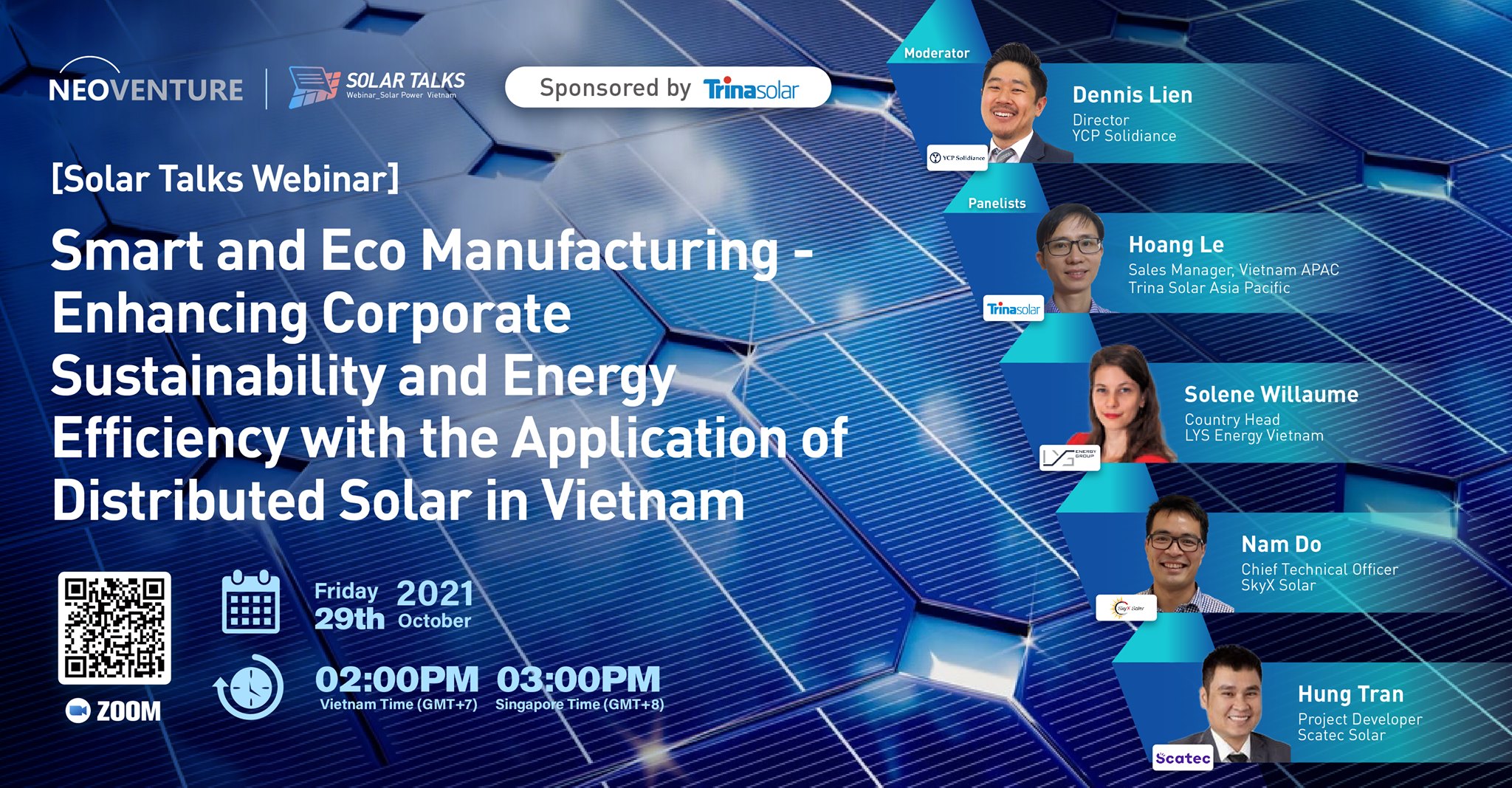On October 29, 2021, investment advisory group Neoventure Corporation held an online seminar, “Smart and Eco Manufacturing - Enhancing Corporate Sustainability and Energy Efficiency with the Application of Distributed Solar in Vietnam,” as part of the company’s ongoing Solar Talks Webinar series.
Industry professionals, including YCP Solidiance Director Dennis Lien, who served as Moderator, shared insights regarding the current landscape and outlook of smart and eco manufacturing, specifically in the context of the Vietnam industrial industry’s usage of solar energy.
As discussed during the event, there are strong indicators that suggest that the next key trend in Vietnam is the use of distributed generation in the form of rooftop solar energy, particularly for manufacturing and industrial processes. Despite delays in solar projects early in 2021 like the postponement of solar tendering and pilot Direct Power Purchase Agreements (DPPA), industry experts are optimistic that stakeholders are keen on adopting solar rooftop in conjunction with energy storage technology in a growing trend of corporate sustainability practices for the potential reduction of operational and energy costs and greater stability of electricity access.
Furthermore, in the YCP Solidiance white paper “Public and Private Sector Cooperation: Sustainable Urban Development in Vietnam,” research has revealed that the country’s energy infrastructure has rapidly evolved over the past few years. Due to ongoing government policy and initiatives like the current draft of Power Development Plan VIII (PDP8), as well as continued efforts from the private sector, Vietnam is on a path to reducing its dependence on traditional energy sources. In 2020 alone, Vietnam managed to increase solar capacity by nearly 10GW (gigawatts).
The green revolution in Vietnam is also expected to be driven by developers as many involved are approaching sustainable development with the intention of enacting energy efficient changes with specific sectoral needs in mind. The growing trend of adopting Corporate Social Responsibility (CSR) for large corporations is in response to a growing trend of integrating sustainability practices. For example, within the industrial sector, developers are looking into building smart factories wherein rooftop solar PV (photovoltaic) panels would play a significant role.
While Vietnam and its manufacturing industry are bound to face certain difficulties in its implementation of solar energy reform, the outlook of transitioning toward clean, renewable energy sources is encouraging. Driven by enthusiastic proponents both from the public and private sector, expect further development in the coming years as Vietnam attempts to fully realize the potential of solar energy in helping stabilize and increase the country’s economic growth.
For more insight into how the Vietnamese manufacturing and industrial sector will capitalize on the benefits of solar energy, subscribe to our newsletter here.


